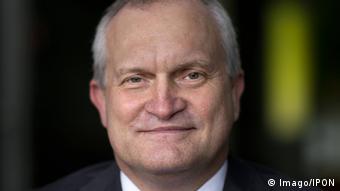The German economy will slow sharply, to expect the so-called economy in her latest report. So that you are more pessimistic than the Federal government.

The Economists and government advisers expect this year’s economic growth of only 0.8 per cent, as the German Council of economic experts (SVR) said on Tuesday in its new forecast.
In November, the experts had to say plus 1.5 percent. “The boom of the German economy is over for now,” said the head of the panel Christoph Schmidt. “A recession is not expected in view of the robust domestic economy, but up-to-date.”
In a DW Exclusive Interview, Schmidt had spoken in the last week, and the implications of weaker growth for Germany.
Wages are expected to continue to rise
Co-responsible of the “temporary” production problems in the automotive and chemical industry. At the same time, “basic dynamics have slowed” of the German economy: export demand from major sales markets was significantly weaker, in many industries, capacity will be reached limits. Also labour shortages played a role.
“A recession is not expected in view of the robust domestic economy, but up-to-date,” assured Schmidt. The number of employed will continue to rise, and the wages and salaries should also grow. Private consumption, construction investment, and the state is expected to contribute positively, expect the economy to point.
For the year 2020, the researchers expect a growth rate of 1.7 percent, mainly due to significantly more working days. Adjusted for this effect, the growth will be 1.3 percent.

Economy Professor Christoph Schmidt, Chairman of the Council of economic experts
“The potential for a recession”
However, they warned of great risks: in addition to the uncertain outcome of the Brexit negotiations contribute to this end, and in particular the unresolved trade conflicts between the United States, Europe, and China, as well as the risk of a stronger-than-expected slowdown in growth in China.
“In view of the already decreasing global economic dynamism, a spiral of protectionist measures would have the potential to allow the German economy to slide into recession”, the economy.
Because of the international trade conflicts and the uncertainty about the EU exit of the UK have recently lowered many of the research institutes to its growth forecasts. The Federal government expects to 2019, with one percent growth, to 1.4 percent in the previous year. The IWH Institute in Halle, the economy grows by only 0.5 percent.
Lower Tax Revenues
The German economy grew last year by 1.4 percent. In 2017, a rise of the gross domestic product (GDP) of 2.2 percent.
This Wednesday, the German Finance Minister, Olaf Scholz (SPD) wants to introduce the key points for the draft budget for 2020 and the medium-term financial planning to the Cabinet. The highest priority is reported to be to create again a “Black Zero” budget with no new debt. In the face of declining tax revenues, the black needs to buckle-red coalition of the belts.
The Advisory Council on the assessment of the overall economic development was established in 1963 by law, to advise on policy. In addition to Schmidt, Lars field, Isabel Schnabel, Volker Wieland, and as a new member Achim Truger belong to the body.
bea/hb (rtr, dpa, afp)

